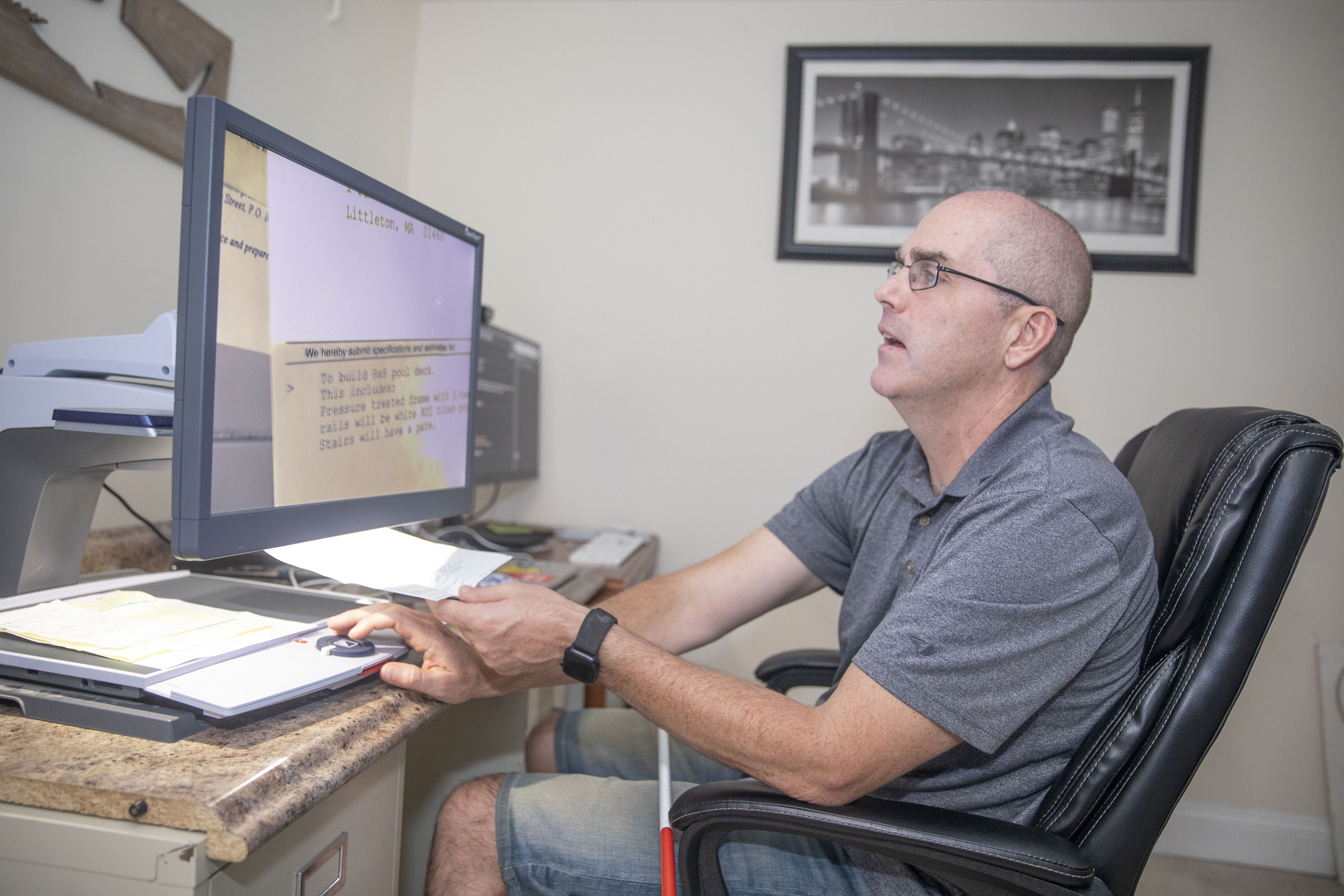
When Erich Manser launched Ability+ in 2020, it had six members. Now it has more than 150.
Kris Snibbe/Harvard Staff Photographer
Putting access for all first
Ability+ Harvard affinity group celebrates two years
When Erich Manser arrived at Harvard in 2019, he noticed something was missing: There was not an established group for faculty and staff centered on the disability experience. So he set about changing that.
Manser, a consultant with Digital Accessibility Services, has personal experience with disability. A degenerative eye disease has left him legally blind. He walks with a cane, does not drive, and uses accessibility tools on his computer. And as a disabled person, he certainly isn’t alone. About 26 percent of U.S. adults have some type of disability, according to the CDC.
Manser drew on his prior accessibility work with companies such as IBM and HP and shared insights on equity and inclusion from existing affinity group Harvard Women in Tech+ to launch Ability+ in 2020. The group is celebrating its two-year anniversary in July, which coincides with Disability Pride Month.
“As I suspected when I first got to Harvard, it seems to be filling a need,” Manser said. “The response and reception from the community has been gratifying and remarkable to see.”
Ability+ grew from six initial members to more than 150 currently. There are about 30 active members who attend each monthly meeting, Manser said.
Since its inception, Ability+ has “noticeably evolved,” Manser said.
The group has recently hosted guests such as University President Larry Bacow, Chief Diversity and Inclusion Officer Sherri Charleston, Vice President for Human Resources Manuel Cuevas-Trisán, and Vice President and CIO of Princeton University Jay Dominick.
“We’re very excited that we’re getting attention from high-level leaders who are recognizing and being involved in what we’re doing,” Manser said.
Measures such as wheelchair ramps, audio descriptions of images and other visual elements online, accessible elevators, automatic doors, alt text on photos, and closed captioning not only improve the experience for people with disabilities, but for everyone.
The 2022 President’s Administrative Innovation Fund awarded financial support for the project “Disability Perspectives — A Film Series,” submitted by Manser, Ability+ co-lead Dorian Meyette, co-founder William Budding, and accessibility consultant Kurt Mueller.
Manser said the showing of Oscar-winning movie “CODA,” which focused on the life of a teen with deaf parents, was a success and led to a moving discussion at which an employee shared the experience of being the child of a deaf adult.
“These are the conversations we need to be having,” he said. “This is what the group is all about.”
The last film in the series will be an original project showcasing the perspectives and experiences of Harvard employees with disabilities. It will be released later this year.
While Ability+ has made strides in its efforts for a more accessible Harvard, there is still work to do.
“When you dig into those conversations and get real about the disability experience at Harvard, it’s not all rosy,” said Manser. “We want to be realistic about where Harvard has been, where we are, and where it’s going to really make progress. That’s what we’re excited about.”
Digital Accessibility Services training sessions for Schools and departments emphasize that people are actively left out of life in the University community when accessibility is not considered, Manser said.
“We point to this community that not only has taken off, but has a growing and vibrant and active membership,” he added. “No longer is it safe to assume that there’s not that many people at Harvard who have disabilities, because now there’s proof that there are.”
Measures such as wheelchair ramps, audio descriptions of images and other visual elements online, accessible elevators, automatic doors, alt text on photos, and closed captioning not only improve the experience for people with disabilities, but for everyone.
“We’re trying to shape behaviors and encourage Harvard members to adopt inclusive practices,” Manser said. “The importance of accessibility is that it improves the experience for all of us.”




